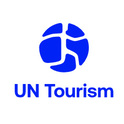Innovation, technology and sustainability - pillars of Smart Destinations
Over three days (15-17 February) more than 100 speakers from 20 countries convened in Murcia, Spain to present solutions and experiences for 'smart destinations'. The 1st UNWTO World Conference on Smart Destinations was organized by the World Tourism Organization (UNWTO) in cooperation with the Ministry of Industry, Tourism and the Digital Agenda of Spain and the Region of Murcia.
'Smart destinations' are key to sustainable development and contribute not only to advances in the tourism sector but also in societies at large. The use of technological solutions contributes effectively to evidence-based decision making, prioritization of measures and anticipation of future scenarios, which is essential for responsible management of tourism and its impacts.
Topics such as smart destination systems for regular and timely measurement, intelligent promotion of tourist sites and digital accessibility formed part of the parallel presentations given over the three days.
Improved accessibility of destinations thanks to new solutions, the opportunities and challenges deriving from geo-referenced data, big data and open data platforms, and enhanced environmental protection through smart tools were also part of the discussions. Furthermore, changing travel behaviours and increasing personalized customer experiences, new business models and the role of entrepreneurs, improved participatory processes supported by smart solutions, the relation between travellers and local communities, and the sharing of existing applications were at the core of the conference.
"'Smart tourism' is not a trend, but the future of tourism development," said UNWTO Secretary-General Taleb Rifai opening the conference. "The International Year of Sustainable Tourism for Development 2017 is the perfect framework to conduct such an event, as it addresses major challenges and opportunities of the tourism sector in the coming years," he added.
"Spain has not only accepted the concept of 'smart tourism', but it has also launched related projects and actions, such as the conversion of the island of El Hierro and other cities such as Palma into 'smart destinations', or the development of normative work on this topic," said State Secretary of Spain for Tourism, Matilde Asián.
"Destinations have to assume the new global framework: a complex context in which tourists' behaviour and new technologies are changing economic structures and related policies; we are in a new scenario of continuous evolution," said the President of the Murcia region, Pedro Antonio Sánchez.
About UN Tourism
The World Tourism Organization (UN Tourism) is the United Nations agency responsible for the promotion of responsible, sustainable and universally accessible tourism.
As the leading international organization in the field of tourism, UN Tourism promotes tourism as a driver of economic growth, inclusive development and environmental sustainability and offers leadership and support to the sector in advancing knowledge and tourism policies worldwide.
Our Priorities
Mainstreaming tourism in the global agenda: Advocating the value of tourism as a driver of socio-economic growth and development, its inclusion as a priority in national and international policies and the need to create a level playing field for the sector to develop and prosper.
Promoting sustainable tourism development: Supporting sustainable tourism policies and practices: policies which make optimal use of environmental resources, respect the socio-cultural authenticity of host communities and provide socio-economic benefits for all.
Fostering knowledge, education and capacity building: Supporting countries to assess and address their needs in education and training, as well as providing networks for knowledge creation and exchange.
Improving tourism competitiveness: Improving UN Tourism Members' competitiveness through knowledge creation and exchange, human resources development and the promotion of excellence in areas such as policy planning, statistics and market trends, sustainable tourism development, marketing and promotion, product development and risk and crisis management.
Advancing tourism's contribution to poverty reduction and development: Maximizing the contribution of tourism to poverty reduction and achieving the SDGs by making tourism work as a tool for development and promoting the inclusion of tourism in the development agenda.
Building partnerships: Engaging with the private sector, regional and local tourism organizations, academia and research institutions, civil society and the UN system to build a more sustainable, responsible and competitive tourism sector.
Our Structure
Members: An intergovernmental organization, UN Tourism has 160 Member States, 6 Associate Members, 2 Observers and over 500 Affiliate Members.
Organs: The General Assembly is the supreme organ of the Organization. The Executive Council take all measures, in consultation with the Secretary-General, for the implementation of the decisions and recommendations of the General Assembly and reports to the Assembly.
Secretariat: UN Tourism headquarters are based in Madrid, Spain. The Secretariat is led by the Secretary-General and organized into departments covering issues such as sustainability, education, tourism trends and marketing, sustainable development, statistics and the Tourism Satellite Account (TSA), destination management, ethics and risk and crisis management. The Technical Cooperation and Silk Road Department carries out development projects in over 100 countries worldwide, while the Regional Departments for Africa, the Americas, Asia and the Pacific, Europe and the Middle East serve as the link between UN Tourism and its 160 Member States. The Affiliate Members Department represents UN Tourism's 500 plus Affiliate members.
Rut Gómez Sobrino
Principal Media Officer
(+34) 91 567 81 60
UN Tourism
